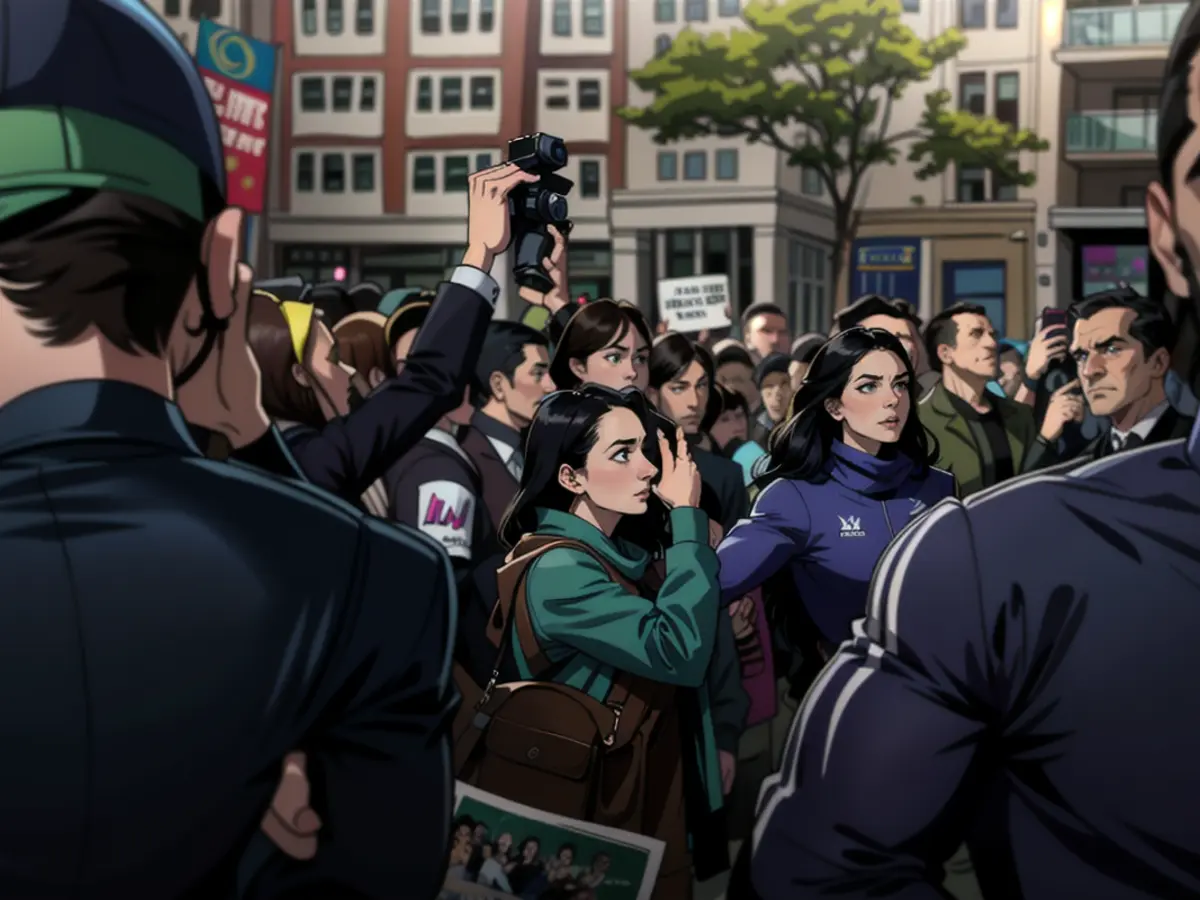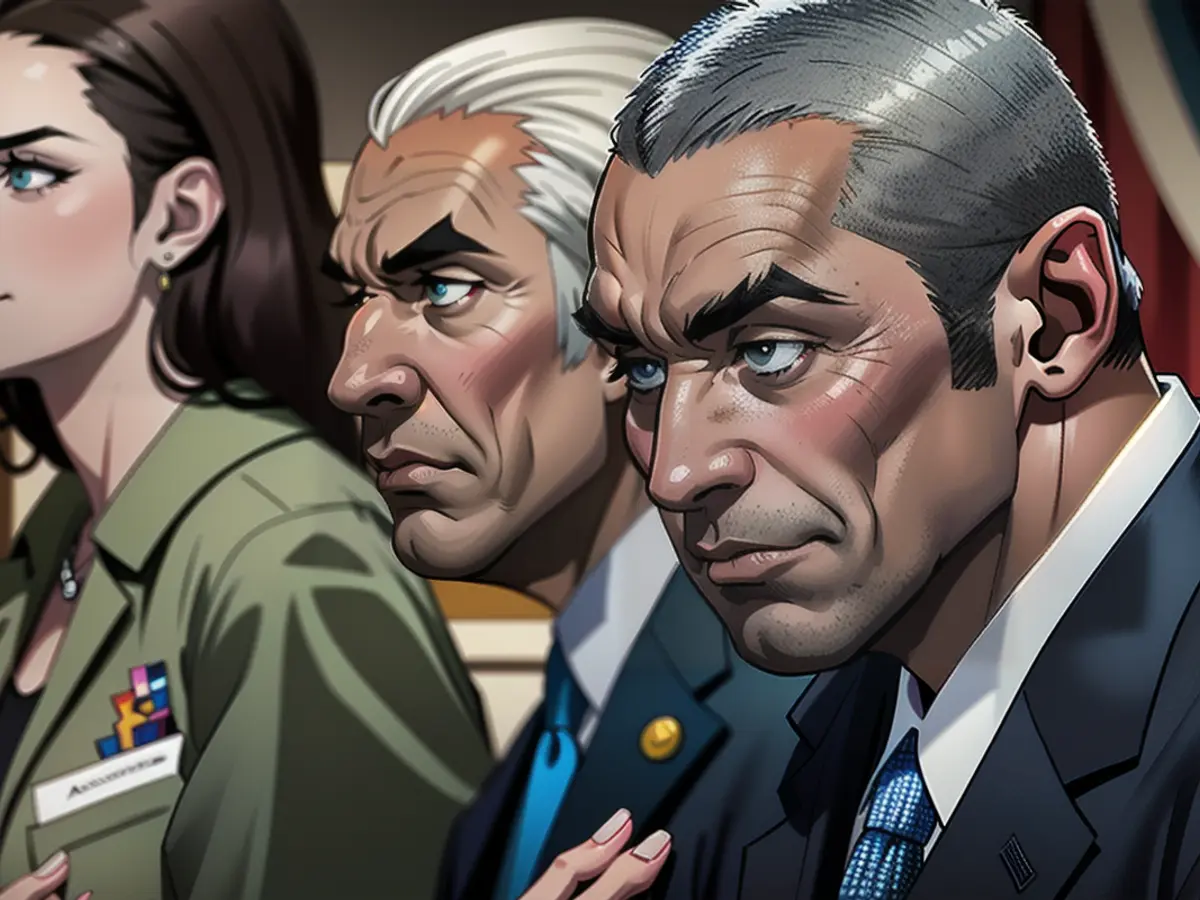During the student demonstration at UPenn, emotions are displayed openly but discussions are scarce.
Unlike most colleges experiencing protests related to the Israel-Hamas conflict, UPenn's campus stays open and welcoming.
One can venture towards the makeshift camp situated beneath the lush greenery on College Green, however, this doesn't ensure a friendly reception.
A person advised passersby on Monday not to engage with either a journalist or an individual lone protester, stating "Don't talk to him". The atmosphere is quite different here, as the primary goal isn't to convert hearts or minds.
Within the barriers
Sarah, the designated spokesperson for the protestors, revealed why she avoided sharing her full identity because of potential doxxing risks.
The prime reason for the presence of the protesters in this area, according to her, is to sympathize with those killed in Gaza. Furthermore, Sarah, a senior at UPenn, connected her Jewish heritage to her cause.
"My Jewish values tell me that innocent people being killed in my name feels morally wrong," she explained while sporting a Star of David necklace.
Her key demand is for Penn to disinvest from Israel and weapon manufacturers. She stated, "We must first disclose any endowment investments as Penn is reluctant to reveal them. We strongly believe they're involved in weapons manufacturing, and we want to know where exactly."
Sarah mentioned the Pennovation Works program as a starting point. "We need to stop funding the project that supports Ghost Robotics, a company producing robot dogs for agencies like the US Air Force, the Department of Homeland Security, and Israel's forces," she said.
However, she abruptly ended the interview only a few minutes in.
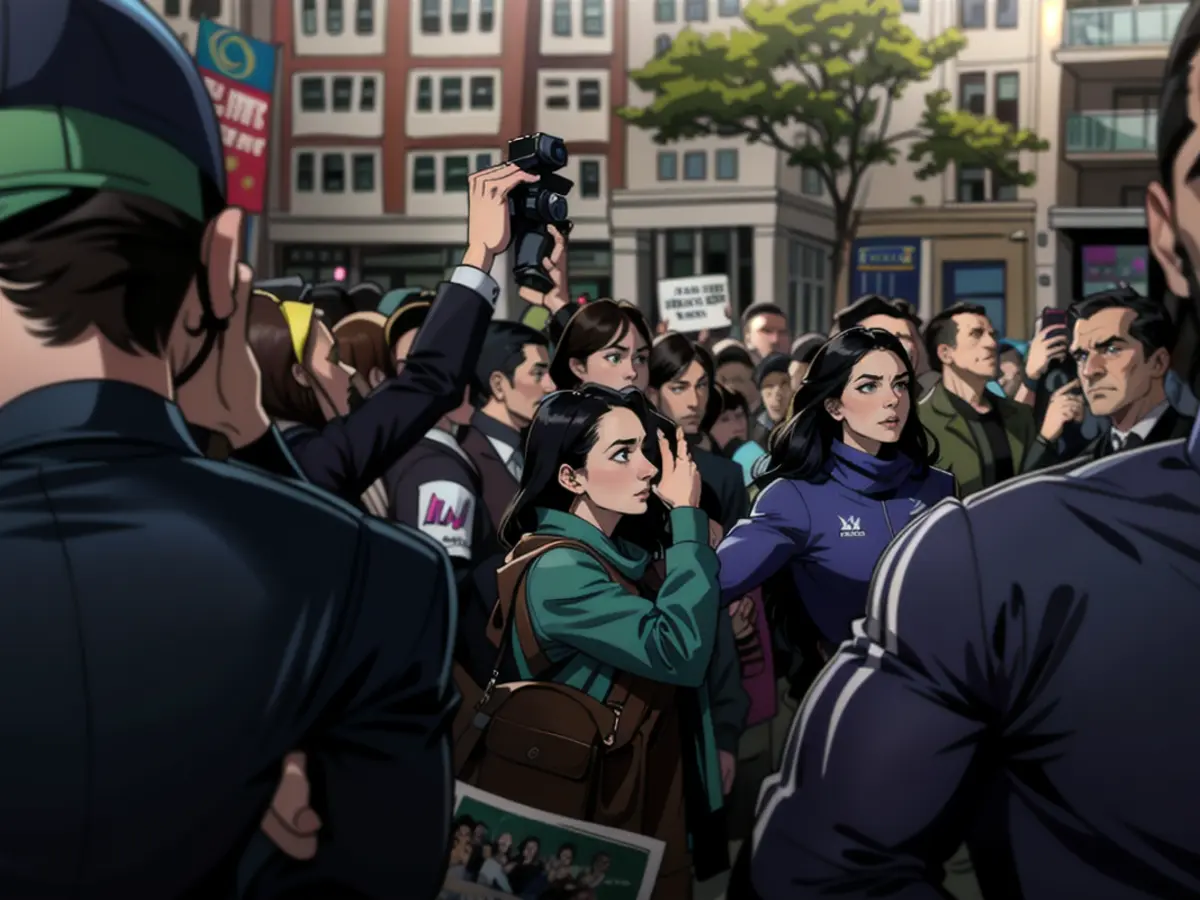
No other individuals inside the barriers were eager to chat. Some even dismissed CNN, claiming they were not meant to be supportive of the cause.
A man wearing a high-visibility vest, a balaclava, and a Palestinian keffiyeh headscarf approached with questions instead of answers. "What's your definition of a freedom fighter versus a terrorist," he challenged a journalist without expressing his own view on the situation in the Middle East.
Only an 18-year-old not part of the encampment conversed with CNN.
"If Israel has the right to defend itself," Smalley questioned, "then why haven't they addressed the 75 years of oppression? It was inevitable since nobody was addressing the issue before."
At some universities, protests that initially opposed Israel's military actions or supported Gaza citizens have also seen sparks of antisemitism.
Smalley, a Community College of Philadelphia student, argued that many of the demonstrations he attended had Jewish organizers.
"I'm proud to continue the legacy of Black and Jewish activism by standing with awesome Jewish people in protesting this genocide. For me, that's not even remotely antisemitic," he said.
Countering a lone counter protester
The only individual who seemed willing to converse was not a student, but a man carrying an Israeli flag.
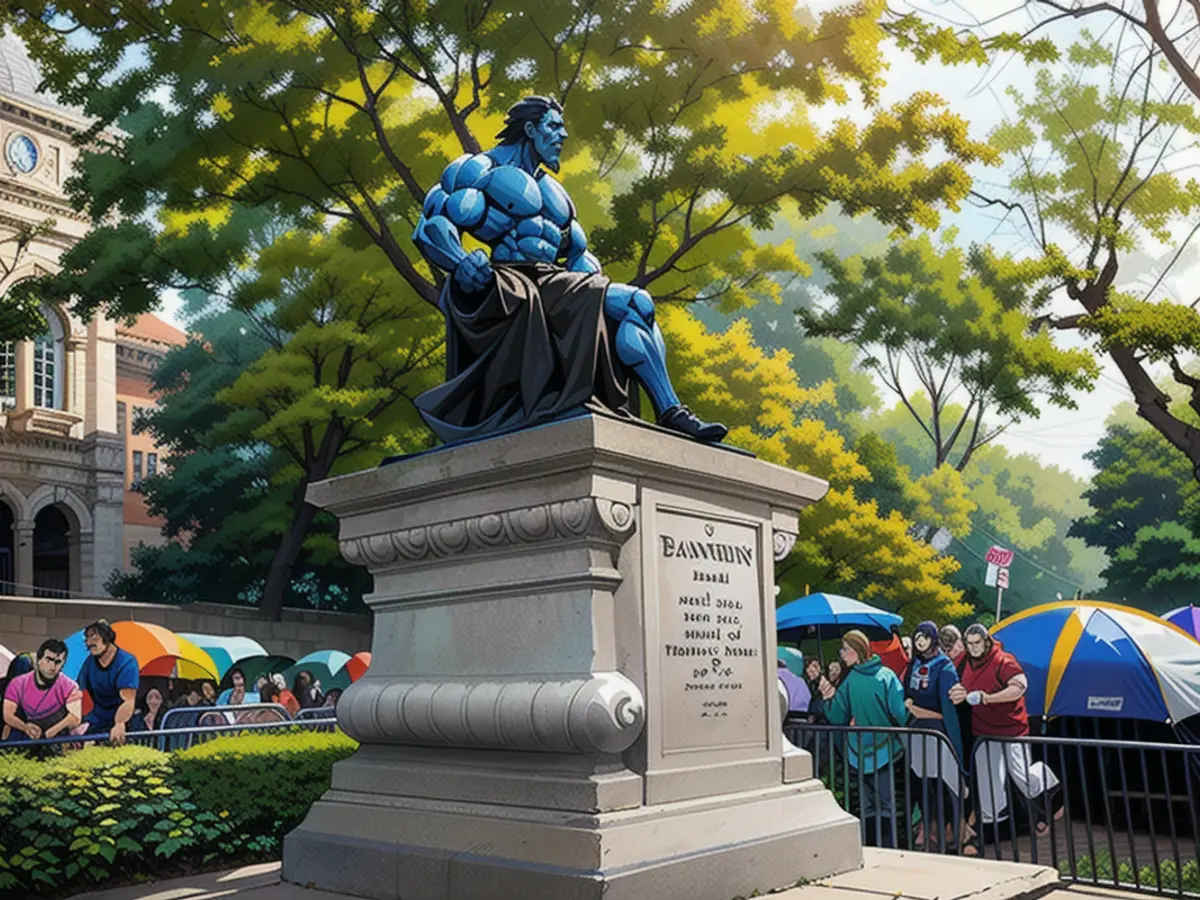
Despite revealing he had no Israeli or Jewish heritage, he shared his belief in the God of the Old Testament followed by the Jews also being the God of Jesus Christ.
"I admit that Israel has made mistakes, but not always," he told a student organizer.
The group recognized him from earlier demonstrations on College Green, a park near Philadelphia's business hub and popular attractions such as Independence Hall and the Philadelphia Museum of Art.
Protesters put up a tarp to separate him from their comrades. Furthermore, someone else chalked a circle around him, labelling it the "Designated Dingus Area".
"At least I have this," the counter protester observed, "because if what I'm saying in Gaza would've been said, I wouldn't even have this... You allow a bit of freedom here," he added.
He noticed the students may have borrowed chants from other protests without comprehending their implications.
"When they chant 'From the river to the sea', they're stating that they want everything, ruling out a two-state solution, which is unfortunate," he remarked.
An elderly man claimed he was from an Israeli Arab village, correcting a pro-Israel protester who insisted the phrase 'From the River to the Sea' meant Israel should extend throughout the region. This, the man stated, symbolized liberty and equal opportunities for all inhabitants.
With tensions mounting, the elder was pressured to leave.
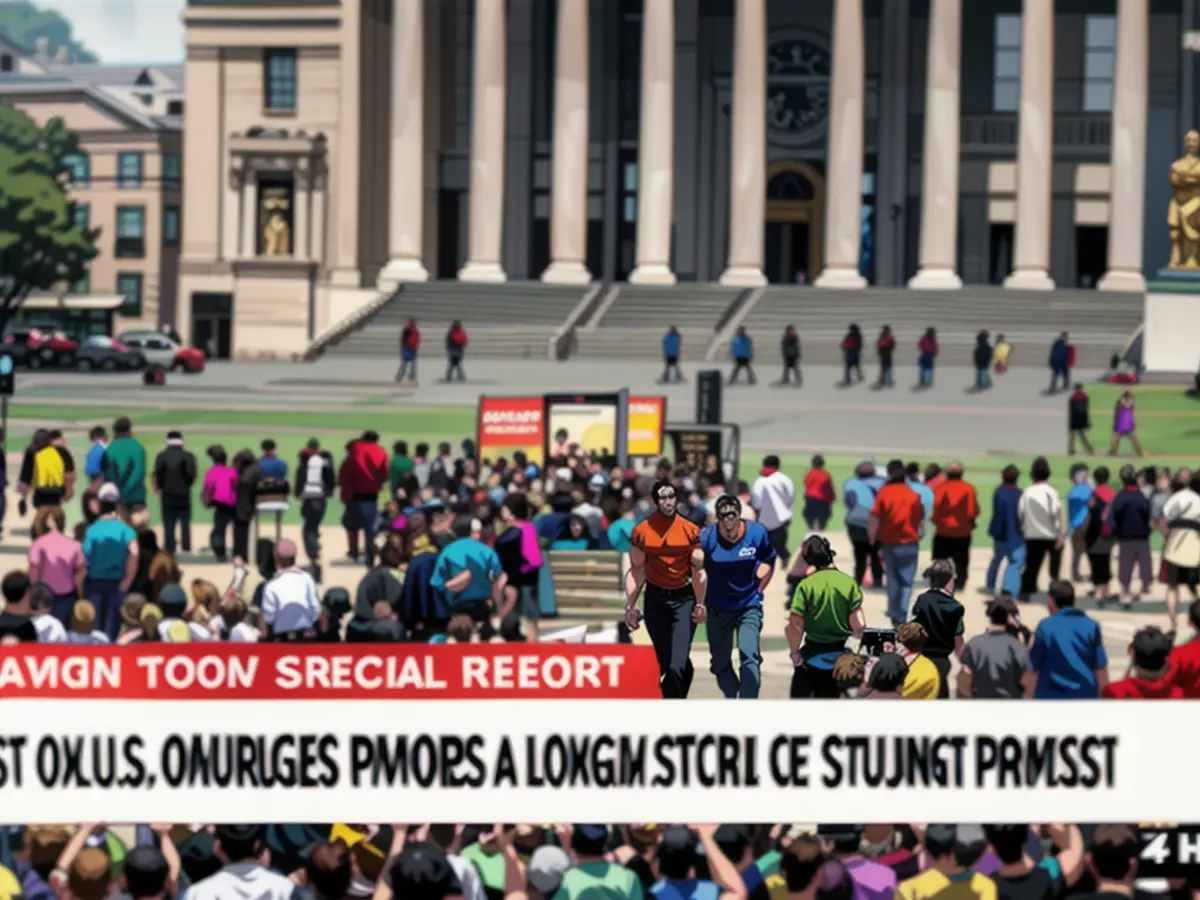
At the same time, a tent was positioned in front of the Israeli flag, obstructing its view. A bearded man jumped into the fray, brandishing a tambourine near the protestor as he entertained, dismissing inquiries about his actions. "I'm just making music," he remarked, requesting the protester to depart.
An administrator from the university interfered, requesting both sides to maintain a safe distance.
Exhibition of Hate
The night grew darker as the protest movement inside the compound intensified. Chants, clapping, drums, and other percussion instruments overwhelmed nearby surroundings, resonating near the statue of Benjamin Franklin.
Passersby, including joggers and dog walkers, strolled through the area. A female activist conspicuously waved a red flag featuring a specific emblem: the标志 of 人民前沿Linear Liberation Front of Palestine, reportedly guilty of the 1976 Air France aircraft hijacking forced to land in Entebbe, Uganda, and other attacks. The organization is recognized as a terrorist group by the United States and European Union.
"No media," she informed CNN. A different activist stepped forth, barring the way as the earlier woman left. Others emerged from their hiding spots, attempting to conceal the camera. In response to queries about the flag's sinister implications, a fellow student responded, "We avoid it," before they all left.
This night, the Islamic call to prayer was recited through loudspeakers and two men took turns leading chants on a megaphone. "We have more vitality than others," one disclosed, approaching CNN for a glimpse of the captured moments.
The unidentified men were not fellow Penn students, he said, promptly diverging and inquiring regarding what would be determined by the cops.
As the demonstrators dispersed, someone shouted, "They're not among us."

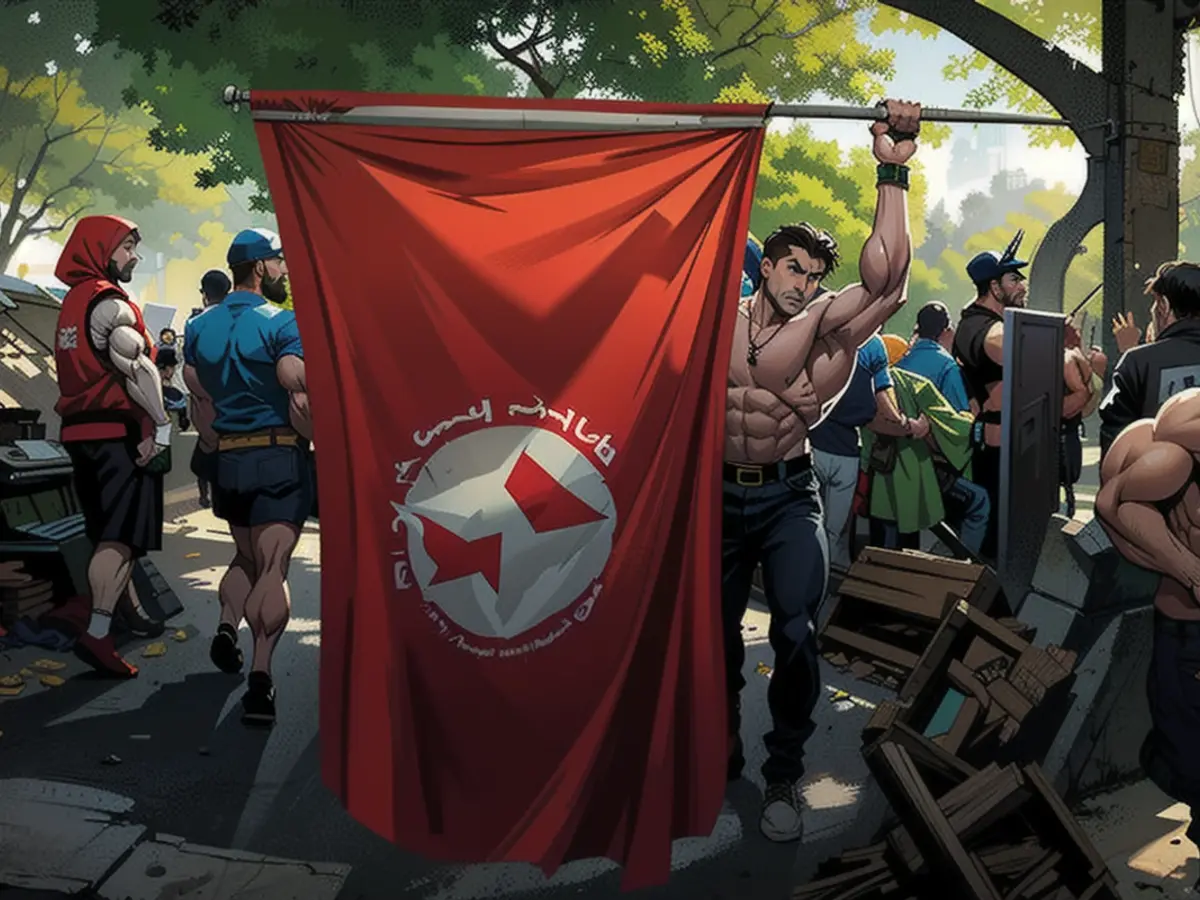
Read also:
- Year of climate records: extreme is the new normal
- Precautionary arrests show Islamist terror threat
- UN vote urges Israel to ceasefire
- SPD rules out budget resolution before the end of the year
Source: edition.cnn.com
